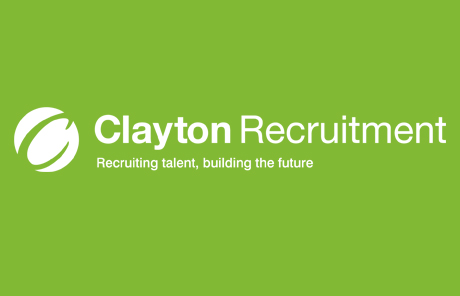
Networking: Mastering the Basics
- January 8, 2024
Networking doesn’t necessarily come easy to everyone, and sometimes even the thought of it can be met with apprehension or worse, sheer anxiety when placed in a situation that can be emotionally or mentally draining.
That being said, investing time to hone your skills will pay dividends in the long run, not only helping you to expand your customer base but also providing opportunities for mentorship, career growth, and collaboration.
As an essential skill, networking has huge potential to open up new opportunities for aspiring professionals across a number of sectors, and play a major part in their career success. And, whilst it’s a given that not everyone is comfortable networking, those in customer or business development-type roles will certainly benefit from being at least competent in this area. Yes…you might be worried about what to say, or how to introduce yourself to new people, especially if you’re surrounded by reputable professionals, but, in reality, it’s relatively easy to become a pro with a little bit of extra practice.
Here are some key tips to keep in mind.
Seek Guidance from a Fellow Professional
Consider who you know to be an impressive networker and could provide you with some helpful advice on how to approach it to form professional bonds. This could be a family member or friend, colleague or even someone from your time at university or college. At the very least, they are likely to let you bounce some ideas off them which will enable you to sharpen and hone your skills.
Be Proactive
Waiting for networking opportunities to come your way won’t yield significant results – you need to be proactive. Take the initiative to attend and relevant industry events, seminars, conferences, and sector-specific get-togethers. Through your employment, you may be invited to join more formal professional networking events. However, do seek out other associations that can equally provide fantastic opportunities to widen the net in your professional network. A well-known organisation that attracts businesses from many sectors is the British Chambers of Commerce and whose whole premise is built on the value of professional networking. Being an active member of such platforms and associations will undoubtedly give you a great foundation and springboard to networking in usually informal settings, yet still add a huge amount of value to those starting out and progressing in their career.
Always Come Prepared
Perhaps an old-school networking method, but still an effective one, having a business card on hand can be extremely useful when actively networking with other professionals, and even more so in the non-professional conversations you have on a daily basis that could give rise to networking opportunities. When they come your way, you want to have a way of capitalising on them – and this leads to an even more important factor in networking – having an ‘always on’ mindset is crucial if you want to do this as effectively as possible. While you don’t need to shoehorn your career passion into every interaction, looking at networking this way can help you improve your social skills in these ‘lower-risk’ situations and build confidence for the bigger conversations you might have with employers or reputable professionals down the line.
When it comes to preparation in the more conventional sense, a set of simple but clear pointers is your best friend, no matter the size or type of network event you are attending. As these events are ultimately about getting you in front of, and eventually front of mind of other like-minded legal professionals, it is essential that on the day you are confident in your ability to navigate the most common social scenarios you find yourself in.
Set Realistic Targets
This starts with going in with realistic expectations about your interactions at the event. Under no circumstance should you be expecting yourself to speak to the majority of people at any event, whether that be an event of 50 or 500. Consider your reasons for being there in the first place. Are you looking for new commercial opportunities or are you perhaps lining up your potential next employer? This will help you narrow down the scope of your search for individuals to speak with to a select few targets, and make planning for those conversations far easier and consequently more productive.
Your next step should then be to ensure you have a few pointers in mind about said conversations, how to begin them and keep them going. A simple but firm handshake and a brief introduction of yourself, your work and what you wish to speak about, before asking them about theirs, should be enough. Avoid kicking things off by firing questions at them as it disregards the other person’s involvement in the conversation and is a quick way to get them uncomfortable with talking about themselves to you.
Prepare Your Pitch
One of the most important parts of networking is your initial pitch – and first impressions count. How will you introduce and describe yourself to people in an engaging yet concise way? Again, the best way to do this effectively is to get feedback from fellow professionals in your network; ask them to listen to your pitch and offer constructive criticism if required. However, you should also be careful not to over-rehearse, nothing sounds less authentic than an overly polished introduction.
Find Common Ground
In terms of the content of the conversation itself, this will vary depending on who you meet on the day of course, but there are certain scenarios you can prep for beforehand. For example, if you know a certain guest or speaker will be present at the event, then you should be doing your research on their background – where they graduated from/are studying, what company they work with and what their own personal interests are.
The best networkers don’t just stick to the stuffier topics when networking. They recognise it’s about showing empathy and finding out more about the person that they’re talking to. Finding common ground is of paramount importance. Whether that’s football, cycling, your children or anything else you can think of, it’s easier to build stronger relationships if you have some sort of shared interest.
Your research should not just be limited to LinkedIn or a simple Google search either, or even the person themselves, but also around what you find out about the above areas like the university, or company they studied/work at. These can commonly be found in any interviews, podcasts or panels they’ve spoken at. The reason for this is that in reality most professionals attending the event will already have done their research on at least a surface level, and will therefore ask largely the same questions like: what motivated you to move into this profession, what are your personal interests outside of work, etc. which the person in question will quickly find boring.
As your goal for attending the event is to build lasting relationships and expand your network, particularly with other well-known professionals, you need to ensure you leave as strong an impression as possible on with whom you are speaking and to do that you need to make it less like an interview and more like an opportunity to talk about their most enjoyable aspects of their life/career. For example, if you have already done your homework on the above and know they happen to also regularly play badminton in their downtime, you could ask a question like:
“I found out in your interview with X talk show that you’re really into your badminton and I also happen to love playing with my friends on the weekend! I was wondering how you manage to fit it around your schedule considering your line of work demands so much of your time. Is it a serious interest you have outside of work?”
See the difference between this and a casual ‘how do you balance work with personal hobbies?’ While the latter really only is concerned about what the answer is, the former takes care to make it relevant and personable to both parties with the aim of learning more about the person, thereby making the chances of getting an equally engaging and unscripted answer more likely.
Follow Up
It’s all well and good meeting people at an event, but it means little if you don’t keep the conversations going by following them up. If it helps, make a short note on the business cards that you’re given to remind you about the individual and then follow up on any information you promised to send over the next day. This leads on to another key point; the importance of reciprocity. People are likely to feel much more inclined to help you if you can offer something that helps them. That means if you know a solution to a problem that someone you met was struggling with, pass it across to them. People are more likely to remember you based on how you make them feel, and one of the easiest ways to do this is to make their lives easier by addressing problems they have. This is how you facilitate reciprocity in professional relationships.
Find Value in Online Networking
Whilst face-to-face interactions are perhaps the first thing that springs to mind when you think of ‘networking’ in today’s digital age, some of the most invaluable opportunities to connect with professionals outside of one’s local vicinity come from online networking. Platforms like LinkedIn offer a wealth of resources for individuals to showcase their expertise, connect with peers, join industry-specific groups, and share valuable insights through thought leadership content. Actively participating in online discussions, and engaging with other professionals worldwide can equally be hugely beneficial – building your personal brand, marketing your services and that of your company, and gaining insight and updates relating to your specific role and sector. For industry specific online networks, groups like the Meetup are also a virtual hive of activity, promoting access to news and resources to support career and personal development, as well as opportunities to connect with other like-minded individuals who share the same interests, passions, and career goals.
In Conclusion
Networking in any sector isn’t straightforward and some professionals will find it much more difficult than others, whilst others may choose to bypass it altogether.
However, learning the skills around professional networking is essential for those looking to thrive and progress from a career perspective – not only forging strong relationships for their own personal development, but using it as an opportunity to market themselves (and their bussiness) to potential stakeholders and customers.
By being proactive, building genuine relationships, utilising online platforms, and staying connected, individuals can create a robust professional network that opens doors to new opportunities, enhances their careers, and contributes to long-term success.
About Clayton Recruitment
Clayton Recruitment has been partnering with organisations across the country since 1989 and during that time has built up an excellent reputation for trust and reliability.
With specialist divisions covering Commercial, Financial, and Engineering appointments, on a permanent basis.
If you are building your existing team or looking for your next career move, we can help. And, if you are currently employed, you can be assured of complete confidentiality, professionalism, and honesty throughout the process – as standard.
Click here to speak to one of our experienced specialists or call 01772 259121 for more information on how our exceptional recruitment experience can help your career aspirations.











